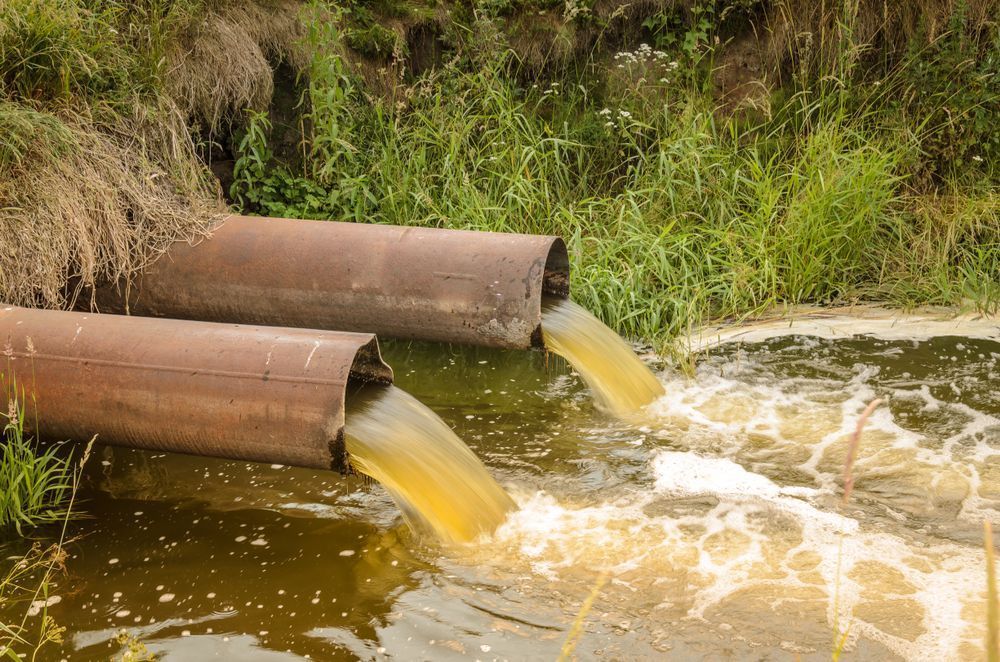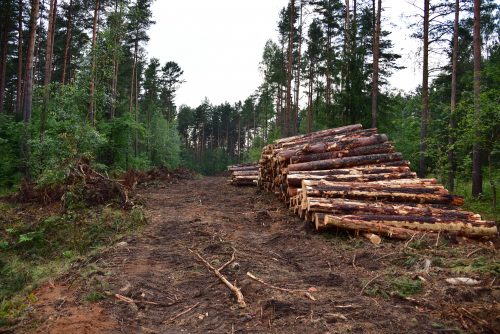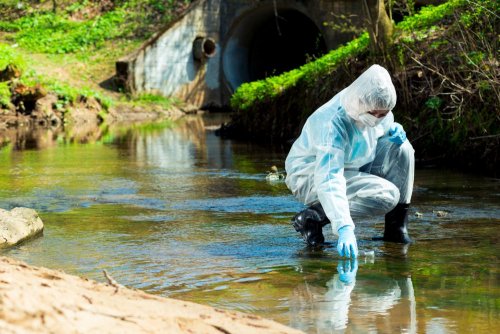The new Cabinet of Ministers of Ukraine has paid very little attention to environmental issues in its draft Government Action Program, and the innovations planned by officials are intended to simplify the life of business, but carry great risks for the environment.
This is the leitmotif of the professional opinions collected by EcoPolitics on this issue. So, what can Ukraine pay for putting the interests of entrepreneurs much higher than the protection of the environment, which is already suffering from the war? Let's find out.
General impression of the Program
The international charitable organization "Environment-Law-Human Rights" (EHR) expressed deep concern that the draft Government Action Program left environmental policy "scattered among economic and sectoral priorities and is not actually considered as a separate strategic pillar of state development."
“War cannot and should not be used as justification for postponing decisions in environmental protection, since the environment itself provides the foundation for people's livelihoods, economic growth, and the future development of the state. European integration has been declared as one of the key vectors, yet the draft Program lacks a clear roadmap regarding environmental tasks,” EPL stated.
Petro Testov, head of the analytical department of the Ukrainian Nature Protection Group (UNPG), also analyzed the draft document presented by the Cabinet of Ministers and noted only 2 significant positive aspects:
- Submission to the Verkhovna Rada of a draft law on the peculiarities of managing the territories and objects of the nature reserve fund and the creation of an infrastructure for managing the nature reserve fund of Ukraine. The expert predicts the creation of a new separate agency for the management of protected areas, whose increased staff will be able to do this much more effectively than a small department in the ministry.
- Support in the parliament of the draft Law of Ukraine "On the Protection of Water from Pollution Caused by Nitrates from Agricultural Sources", which implements the EU directive.
Potential risks to the environment
Experts emphasize the likely negative consequences that will accompany the implementation of the ministries' strategic goals. We list them below.
1. Weakening of environmental control
The draft Program envisages the transfer of a large number of permitting procedures to the declarative principle: declarations instead of permits, and post-facto response instead of constant control. Experts warn that in a situation where there is a moratorium on inspections, this creates favorable conditions for unpunished violations. For example, the construction of hydroelectric facilities without prior approvals can destroy aquatic ecosystems even before the state can intervene.
"Someone blocked the river, built a pond and took all the water. There is an environmental disaster downstream. After six months of scandals, the environmental inspection will come, and in three years they will win all the courts and get an order to dismantle the dam. But what will be left of the river in three years?" Petro Testov gives an example.
The EPL adds that the transition to a "preventive control system" while reducing business inspections will only exacerbate the problem.
"At a time when pollution from enterprises is already largely unpunished, further weakening of state environmental control could have catastrophic consequences. Instead, Ukraine needs a reform of the State Environmental Inspectorate in accordance with European standards, with mandatory transposition and implementation of relevant European directives limiting environmental pollution and the use of natural resources," the organization believes.
2. Opening the way for the implementation of projects without sufficient environmental risk assessment
Experts have once again warned against simplifying environmental impact assessment (EIA) procedures. This tool is one of the main safeguards that ensures that business projects take into account the environmental impact of their implementation.

However, the Program envisages simplification of EIA procedures, and the draft law "On the Timber Market" generally limits this tool. Experts emphasized that this directly contradicts Ukraine's European integration commitments.
3. Destruction of unique ecosystems after liberalization of land relations
The government's planned simplification of land use designation and liberalization of procedures in the field of land relations for farmers and entrepreneurs pose risks of destruction of valuable ecosystems.
Mr. Testov reminded that the Ministry of Agrarian Policy and Food of Ukraine has already developed a similar draft law, which included the forced sale of unused communal land plots at land auctions and the abolition of the special status of peatlands.
"Back then, the Ministry of Environment was against it, and the law did not reach the Rada. And now who will be against it?" he asks reasonably.
4. Threats to water resources
The Program envisages the development of reclamation infrastructure and stimulating the economic development of the fisheries sector, but in a way that poses risks to the environment. The mass construction of new ponds, repeated draining of territories, and the exclusive use of water resources for irrigation and aquaculture are viewed by experts as a dangerous trend. This could lead to a lowering of groundwater levels, the disappearance of small rivers, and the loss of natural wetlands, which in Europe they not only strive to preserve but also fund their restoration.
The head of the analytical department of UPG recalled that the president had already vetoed a draft law on the development of the fisheries sector in the past.
5. Increased corruption and closedness of the forestry sector
The continuation of the forestry reform planned by the Cabinet of Ministers envisages the corporatization of the state enterprise "Forests of Ukraine". Experts say that in practice, this could lead to concentration of management, closed decisions, and increased corruption practices (although it seems that it could go much further).
According to experts, the law "On the Timber Market" additionally threatens to limit environmental control. They emphasize that it looks like an attempt to put economic interests above environmental ones.

6. Dominance of interests of subsoil users
The program provides for simplification of access to subsoil for investors. According to Testov, the experience of previous "simplifications" has shown that this leads to scandals and abuses, such as uncontrolled peat extraction in protected areas. At the same time, EPL points out that the document is clearly dominated by the interests of the extractive sector, while environmental protection mechanisms are absent or minimized.
"The very structure of the criteria [in the Program – ed.] indicates the dominance of the interests of the extractive sector and critical minerals, while environmental protection, which has clear requirements, standards and obligations for all business entities, and measures of legal responsibility, is present only in fragments," the EPL states.
7. Lack of a systematic approach to waste
Although the Program mentions the creation of a waste recycling infrastructure, it does not provide a clear plan for implementing such intentions, experts say. According to EPL experts, the problem of thousands of unauthorized landfills and a new type of waste – military waste – for which there is no management strategy at all, remains particularly acute. This threatens to accumulate toxic and hazardous materials without proper disposal.
"This is a critically important area, but its implementation requires not only declarations, but also dozens of bylaws, clear financial mechanisms and community involvement. The European Commission also pointed out in its 2024 report the need to address the issue of closing 6,000 unauthorized landfills," the organization reminded.
8. Insufficient monitoring and restoration of the environment
The EPL also noted that the Program lacks a clear vision of mechanisms for monitoring land degradation and reclamation, restoration of aquatic ecosystems, water quality control, creation of a system for monitoring the state of atmospheric air and responding to man-made accidents, a plan for restoring damaged protected areas and ensuring their management according to the principle of "Do No Significant Harm" (DNSH).
"There is also no mention of the need to strengthen Ukraine's institutional, human and logistical capacity to document war crimes against the environment, to cooperate with international institutions to bring Russia to justice and compensate for environmental damage, as well as to guarantee public participation, access to information and transparency of the recovery process," the experts added.

Without such tools, it is impossible to respond to crises in a timely manner and to restore ecosystems after the war.
9. European integration risks
Both Petro Testov and EPL experts agree that the lack of a systematic environmental policy may call into question Ukraine's negotiations with the EU. Currently, our country is obliged to implement more than 200 acts of the Environmental Acquis, and weakening environmental procedures will mean a rollback from European standards.
"The absence of a systematic environmental policy in the reform program will jeopardize the negotiation process and the very possibility of Ukraine's accession to the EU in the near future," EPL warned.
10. Conceptual risk of the "old economy"
According to the analysis of experts, the Government Action Program focuses on industrial parks, privatization, and scaling up production and processing.
"Without strict environmental safeguards, this reproduces a model of the economy based on resource depletion, instead of a transition to climate-neutral and sustainable development, a circular economy," EPL emphasized.
As a reminder, EcoPolitics recently made a detailed analysis of how much attention government officials paid to environmental issues in the draft Government Action Program and what environmental protection measures the Cabinet of Ministers planned to implement.





